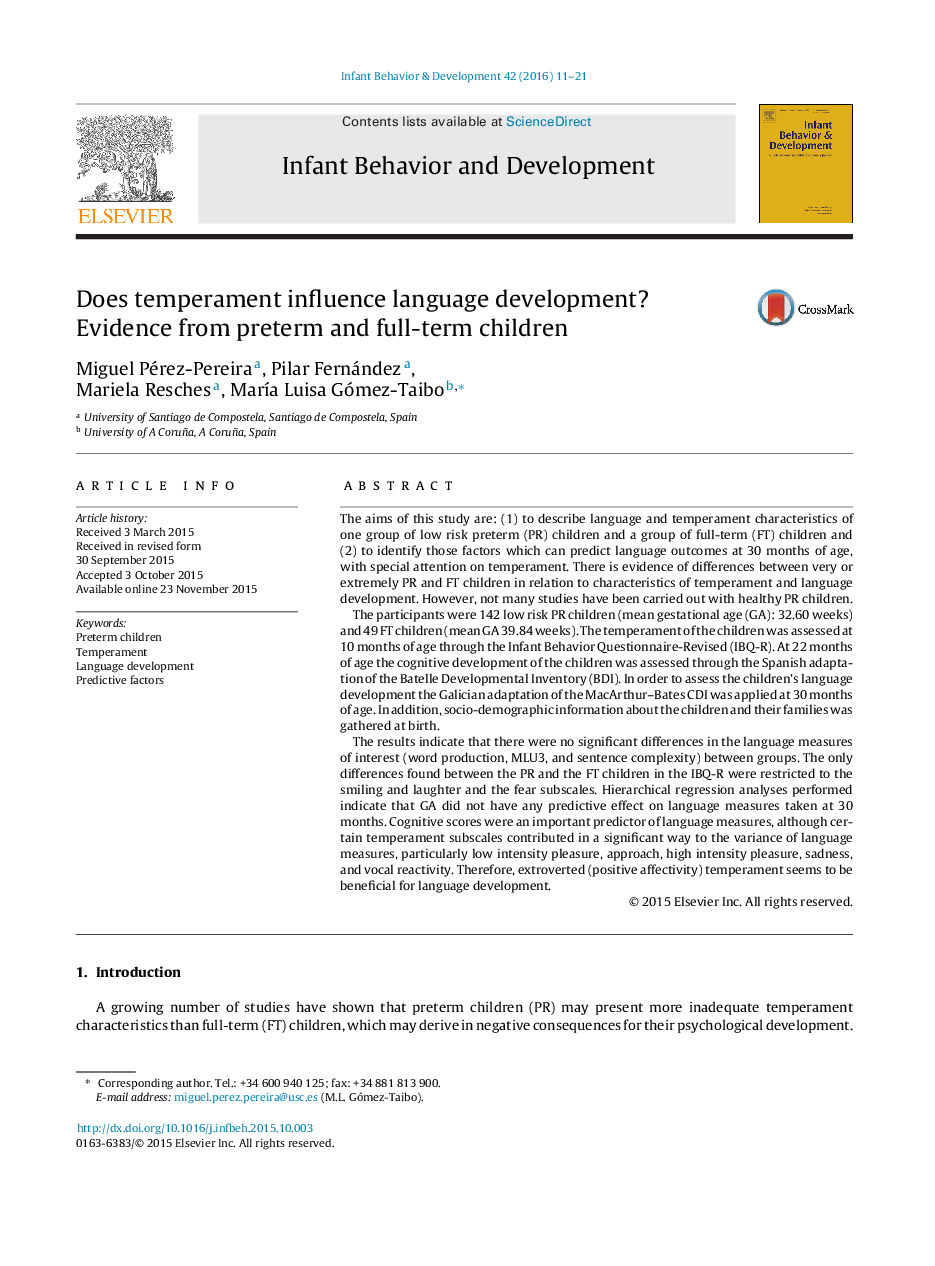| کد مقاله | کد نشریه | سال انتشار | مقاله انگلیسی | نسخه تمام متن |
|---|---|---|---|---|
| 917138 | 1473418 | 2016 | 11 صفحه PDF | دانلود رایگان |
• Temperament seems to have an important predictive effect on language development.
• More extroverted children tend to have higher language scores at 30 months of age. Gestational age does not seem to have a relevant effect on language development when PR children are healthy.
The aims of this study are: (1) to describe language and temperament characteristics of one group of low risk preterm (PR) children and a group of full-term (FT) children and (2) to identify those factors which can predict language outcomes at 30 months of age, with special attention on temperament. There is evidence of differences between very or extremely PR and FT children in relation to characteristics of temperament and language development. However, not many studies have been carried out with healthy PR children.The participants were 142 low risk PR children (mean gestational age (GA): 32.60 weeks) and 49 FT children (mean GA 39.84 weeks). The temperament of the children was assessed at 10 months of age through the Infant Behavior Questionnaire-Revised (IBQ-R). At 22 months of age the cognitive development of the children was assessed through the Spanish adaptation of the Batelle Developmental Inventory (BDI). In order to assess the children's language development the Galician adaptation of the MacArthur–Bates CDI was applied at 30 months of age. In addition, socio-demographic information about the children and their families was gathered at birth.The results indicate that there were no significant differences in the language measures of interest (word production, MLU3, and sentence complexity) between groups. The only differences found between the PR and the FT children in the IBQ-R were restricted to the smiling and laughter and the fear subscales. Hierarchical regression analyses performed indicate that GA did not have any predictive effect on language measures taken at 30 months. Cognitive scores were an important predictor of language measures, although certain temperament subscales contributed in a significant way to the variance of language measures, particularly low intensity pleasure, approach, high intensity pleasure, sadness, and vocal reactivity. Therefore, extroverted (positive affectivity) temperament seems to be beneficial for language development.
Journal: Infant Behavior and Development - Volume 42, February 2016, Pages 11–21
